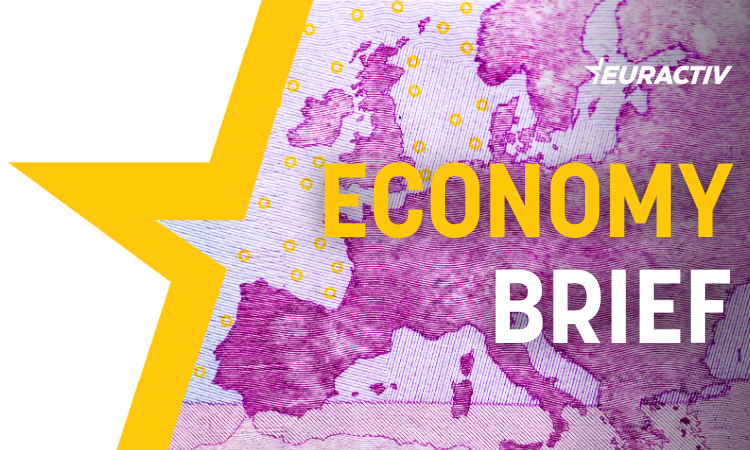
Anyone with even a passing familiarity with economics will likely have heard of the “invisible hand” of the market metaphor.
Invented by the 18th-century Scottish economist Adam Smith, the term is typically used to refer to how individual market actors, pursuing their own selfish interests, unwittingly produce outcomes that are in the interests of everyone — notably, by making everybody richer.
Long disparaged by progressives, the phrase has arguably provided the core ideological framework for the sweeping economic globalisation witnessed over the past few decades. Eliminate bureaucracy, regulations, and other market restrictions, and everyone will be better off, or so the argument goes.
The long reach of Smith’s invisible hand was especially evident — indeed, almost visible — earlier this week, when the Eurogroup, the informal assembly of 20 eurozone finance ministers, published a statement urging the European Commission to deepen the bloc’s Capital Markets Union (CMU).
The document, which repeatedly emphasises the need to reduce the “regulatory burden” faced by financial companies, also notes that integrating the EU’s single market for capital “is critical to improving the investment opportunities for investors, businesses, and citizens, and promote sustainable growth and financial stability in the EU”.
In other words: free European capital from its current regulatory straitjacket, and let the invisible hand of the bloc’s capital markets work its magic.
Interestingly, however, the metaphor of the “invisible hand” as understood by Smith is subtly — but crucially — distinct from its more modern construal.
In The Wealth of Nations (1776), Smith’s undisputed masterpiece, the metaphor appears precisely once, in a chapter entitled “Of Restraints Upon Importation From Foreign Countries Of Such Goods As Can Be Produced At Home”:
“As every individual, therefore, endeavours as much as he can, both to employ his capital in the support of domestic industry, and so to direct that industry that its produce may be of the greatest value; every individual necessarily labours to render the annual revenue of the society as great as he can…
By preferring the support of domestic to that of foreign industry, he intends only his own security; and by directing that industry in such a manner as its produce may be of the greatest value, he intends only his own gain; and he is in this, as in many other cases, led by an invisible hand to promote an end which was no part of his intention.” (Emphasis added)
In other words: the metaphor of the “invisible hand” was not understood by Smith to refer to the mechanism through which selfish market actors unintentionally promote the common good.
Rather, his point was that by pursuing their own selfish interest and by preferring domestic to foreign investment, market actors will pursue ends that ultimately benefit local society.
In short: selfishness plus economic nationalism equals (domestic) wealth.
This version of the invisible hand, however, is squarely at odds with the principles espoused in the Eurogroup statement. Indeed, the document explicitly urges member states to “address national barriers that slow down the use of the common EU framework” for capital investment.
Smith would almost certainly have been puzzled by such proposals. In fact, he would likely have viewed them as completely unnecessary. Why tear down barriers to foreign investment when people will ultimately prefer to invest at home?
Of course, Smith’s underlying assumption is almost certainly wrong. If the unfettered globalisation over the past several decades has taught us anything, it is that investors will almost always prefer to make money abroad rather than domestically, so long as there are sufficient profits to be made.
This fact has become particularly salient in recent months, as European companies seek the competitive advantages of industrial subsidies and cheaper energy prices abroad, especially in the United States and China.
Indeed, it is precisely this fear of Europe’s declining competitiveness that has triggered the recent flurry of interest among EU officials in strengthening the CMU.
“Today, Europe is at risk of falling further behind globally in terms of competitiveness, growth, and prosperity of its citizens,” the Eurogroup statement reads. “European capital markets need to be urgently developed into globally competitive markets.”
Market forces, then, are construed by the Eurogroup not as Smith did, but rather much the same way Homer Simpson viewed alcohol: as both the cause of, and solution to, all of life’s problems.
One almost wishes Smith was right.
Chart of the Week
Foreign direct investment into and out of the EU fell significantly in 2022, when a combination of the energy crisis, the passage of the US Inflation Reduction Act, and record-high interest rates led to a steep decline in Europe’s economic competitiveness.
Investment picked up a bit in the first quarter of last year but, worryingly, fell again the second. Europe’s investment problems, it seems, are here to stay.
Economic News Roundup
Scope of EU supply chain rules cut by 70% ahead of key Friday vote. Belgian diplomats threw a last-ditch effort to get France and Italy on board with the EU supply chain law ahead of a key vote among envoys from the 27 member states on Friday – by further stepping up the annual turnover threshold for companies to fall under the CSDDD legislation. Meanwhile, the fact that an interrelated law banning products linked to forced labour was tentatively adopted on Wednesday, with only three countries abstaining, strengthens the case for national ministries to also support the CSDDD, analysts said. Read more
Earlier over the weekend, the European Commission joined Belgian negotiators to arm CSDDD text against last-minute political push, adding reassurance on SMEs, after Italian enterprise minister Adolfo Urso signalled the country would have continued to push for concessions. However, his SME-burden argument was widely contested as lacking credibility, given the CSDDD’s favourable treatment of the segment. Urso also indicated the country was also looking to get more changes on a file he saw as connected – the packaging and packaging waste legislation. Read more.
Debt or no debt? German coalition parties drift further apart. Internal divisions within Germany’s three-party government coalition have become even more visible this week, with Finance Minister Christian Lindner (FDP/Renew Europe) taking aim at his coalitions partners’ stance on fiscal policy. While Economy Minister Robert Habeck (Greens) on Tuesday kicked off a new €23 billion subsidy scheme to help energy-intensive industries decarbonise and promoted an even bigger use of subsidies financed with additional public debt, his liberal coalition partner has sharply rejected the idea. “It is not up to politicians or anyone else to decide which technology, which company, which industry has a future,” Lindner said, adding that this should be a question of “market-based competition”. Read more.
Business associations disappointed by German draft law on red tape. While the German government increases pressure at the EU level to cut red tape for businesses, it faces obstacles to achieving the same goal at home. A new “bureaucracy relief” package, adopted by the government on Wednesday (13 March), has been criticised as not far-reaching enough by business associations, who complain that their proposals have been largely ignored. Trade unions, meanwhile, have blamed business leaders for having a “hidden agenda”, by labelling as “bureaucracy” issues that actually fulfil crucial roles to ensure workers’ rights and protection. Read more.
Senior European Central Bank (ECB) official says that the eurozone economy has already suffered the worst effects of the bank’s restrictive monetary policy over the past two years. “We estimate that the highest negative impact of the tightening of monetary policy on growth probably took place already in the second half of 2023, or it may be taking place now, at the beginning of 2024,” ECB’s Director General for Economics, Oscar Arce, said at an event hosted by the Belgian government in Brussels. Carsten Brzeski, an economist at ING bank, expressed scepticism about Arce’s remarks, although he agreed that it is “extremely hard” to estimate the impact of monetary policy on growth. Read more.
The European Union’s new fiscal rules will require a reduction in net government spending next year, but critical investment needs will remain paramount, Eurozone finance ministers say. “Based on the latest available data, the requirements of the revised economic governance framework would translate into an overall slightly contractionary fiscal stance in the euro area in 2025,” reads a Eurogroup statement published after a meeting in Brussels on Monday afternoon. The statement follows multiple experts’ explicit warnings that the so-called ‘revised economic governance framework’, agreed in trilogue discussions last month, risks jeopardising the EU’s ability to achieve its target of net-zero carbon emissions by 2050. Read more.
Analysts warn EU’s push to make private sector finance key investments is misguided. On Monday (11 March), European Commissioner for Economy Paolo Gentiloni suggested that the funds needed for the bloc’s digital and green transitions “will mostly be coming from private resources” — and that these could, in turn, be mobilised through boosting EU CMU plans. However, Philipp Lausberg, an analyst at the European Policy Centre (EPC), was highly sceptical of legislators’ newly-found enthusiasm for almost decade-old CMU plans. “It seems like member states have discovered the Capital Markets Union now as a sort of panacea for their investment needs,” he said. Nicolas Véron, a senior fellow at Bruegel think-tank, also pointed to the ECB’s assessment last week that “there are no more low-hanging fruits to pick” to further integrate capital markets. Read more.
Literature corner
Economics is irredeemably sexist
The future of ‘communist capitalism’ in China
Growing gulf between rich and poor countries ‘recipe for much darker future’, says UN
[Edited by Anna Brunetti/Zoran Radosavljevic]







